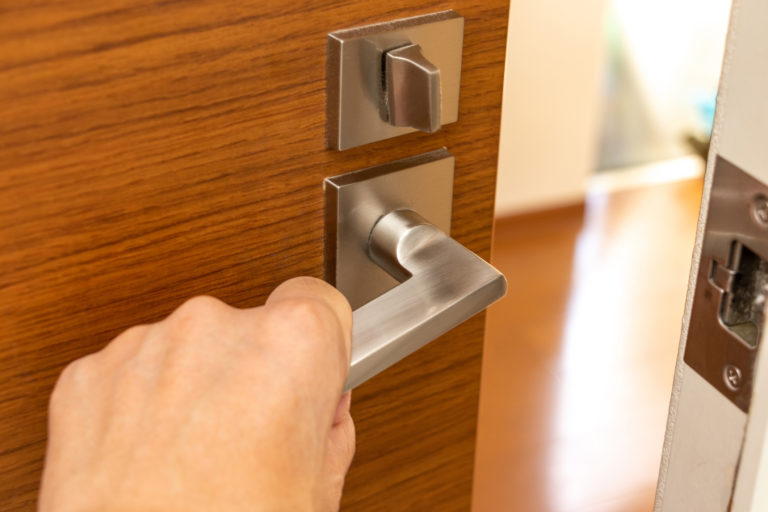Winter’s icy grip can freeze locks, leaving you unable to open doors and potentially causing damage to your keys or the lock itself. By weatherproofing your locks, you can avoid these cold-weather frustrations and keep them functioning reliably. Follow this guide for practical tips on protecting your locks from freezing and ensuring smooth operation throughout the winter months.
Freezing Locks: Causes and Prevention
Freezing locks occur when moisture infiltrates the mechanism and solidifies in low temperatures. Rain, snow, or even condensation can freeze within the lock, leaving it stiff and unresponsive. Dirt and debris can also mix with the moisture, creating additional blockages. Identifying these factors is key to keeping your locks functional in cold weather.
Winter Lock Care: Finding the Right Lubricant
Applying a proper lubricant is one of the best ways to protect your locks from freezing in winter. Silicone-based lubricants and graphite powder are excellent for repelling moisture and resisting freezing, while oil-based options like WD-40 should be avoided as they can gum up and attract debris.
How to Apply:
Insert the nozzle or straw of the lubricant into the keyhole.
Spray or puff a small amount of lubricant into the mechanism.
Insert the key and turn it several times to evenly distribute the lubricant.
Wipe any leftover lubricant from the lock’s exterior.
Make sure to lubricate your locks regularly, particularly before cold weather arrives, to keep them working smoothly and prevent freezing.
Protecting Locks from Water Damage
Protecting your locks from moisture is essential for preventing freezing. Follow these methods to safeguard them:
Install a Weatherproof Cover: Available at most hardware stores, these covers shield locks from rain, snow, and ice, reducing the likelihood of freezing.
Seal Gaps Around Locks: Inspect your locks and door frames for gaps where moisture might enter. Use caulk or weatherstripping to close off these areas.
Use a Lock De-icer Spray: A de-icer spray can melt ice and clear moisture in emergencies. However, it’s best used as a backup solution rather than the main preventive measure.
Avoid Frozen Spare Keys by Storing Them Inside
Winter weather poses risks for spare keys left outside, as they can freeze or become brittle from exposure to cold and moisture. Store spare keys indoors in a warm and dry area whenever possible. For outdoor storage, use a weatherproof key lockbox to safeguard them from freezing conditions.
Protect Outdoor Locks: Simple Covering Solutions
Outdoor locks, such as those on garages, gates, or sheds, can freeze easily in winter. Shield them by placing a plastic bag, sock, or rubber cap over the lock and securing it with a rubber band. This straightforward solution minimizes exposure to ice and snow, keeping your locks protected.
The Importance of Keeping Locks Clean Year-Round
Dirt and debris inside locks make them more susceptible to freezing in winter. Regular cleaning is essential for smooth operation. Here’s how to do it:
Insert a cotton swab or pipe cleaner into the keyhole to clean out dirt and dust.
Use compressed air to remove hard-to-reach debris.
Apply a lubricant to maintain free movement in the mechanism.
A consistent cleaning routine helps weatherproof locks and ensures they stay functional.
Why Hot Water Can Worsen Frozen Lock Issues
While pouring hot water on a frozen lock might seem like a good idea, it can actually make the problem worse. The water can freeze again in cold weather, worsening the situation. Instead, use a lock de-icer, a lubricant, or gently heat the lock with a hairdryer on a low setting to thaw it safely.
Ensure Lock Performance: Test Them Often
Testing your locks periodically throughout the winter is important, even if you’ve taken precautions. Insert your key and check for smooth turning. If you encounter stiffness or resistance, deal with it promptly to avoid further complications.
Why New Locks Are Essential for Freezing Conditions
Worn-out locks are more susceptible to freezing and performance issues in winter. If your lock shows signs of rust, sticking, or difficulty turning, replace it with a weather-resistant or all-weather lock. These durable locks are built to handle cold temperatures and moisture effectively.
Winterize Your Locks with Insulated Covers
Protect outdoor locks you rely on with a lock sock or insulated lock protector. Made from weather-resistant materials, these covers help insulate locks from freezing temperatures. They work especially well for padlocks on gates, sheds, and garages, preventing freezing and ensuring smooth operation.
Deadbolt Covers: A Simple Solution to Prevent Frozen Locks
Protect exposed deadbolt locks by adding a deadbolt cover. These covers provide an extra layer of insulation against wind, snow, and ice, reducing the risk of freezing. Easily available at hardware stores, they’re quick to install and a great way to safeguard your locks in winter.
De-icing Kits: Your Go-to Solution for Frozen Locks
Frozen locks can still occur despite preventive measures, so it’s wise to have a de-icing kit on hand. Keep one in your home or car, complete with a lock de-icer spray, compressed air, and a lightweight hand warmer. This simple kit helps you stay prepared for unexpected lock emergencies.
How Digital Locks Simplify Lock Care in Winter
Upgrading to digital or smart locks can be a game-changer in areas with severe winters. These locks don’t rely on traditional keys, minimizing the risk of freezing or key breakage. Many smart locks are equipped with weatherproof features, ideal for withstanding cold climates. Though the cost is higher, the long-term benefits make it a smart choice.
Regular Upkeep: Ensuring Your Locks Stay Winter-Ready
To keep your locks functioning properly, make regular maintenance a priority. At the start and end of the cold season, check for rust, wear, or damage. Clean the locks, lubricate them, and replace any that are heavily worn. This preventative care will help your locks remain reliable year-round.
Weatherproofing your locks during the cold season is a critical aspect of maintaining your home and property. Proactive steps, like using appropriate lubricants, shielding locks from moisture, and practicing regular maintenance, can prevent freezing and ensure smooth functionality throughout winter. If a lock freezes, avoid force or hot water and opt for de-icers or gentle warming techniques instead.
With consistent care and preparation, your locks can remain functional even in the harshest winter conditions. Proper maintenance and weather-resistant upgrades will not only prolong their lifespan but also give you peace of mind knowing your locks are ready to handle the challenges of the season.

